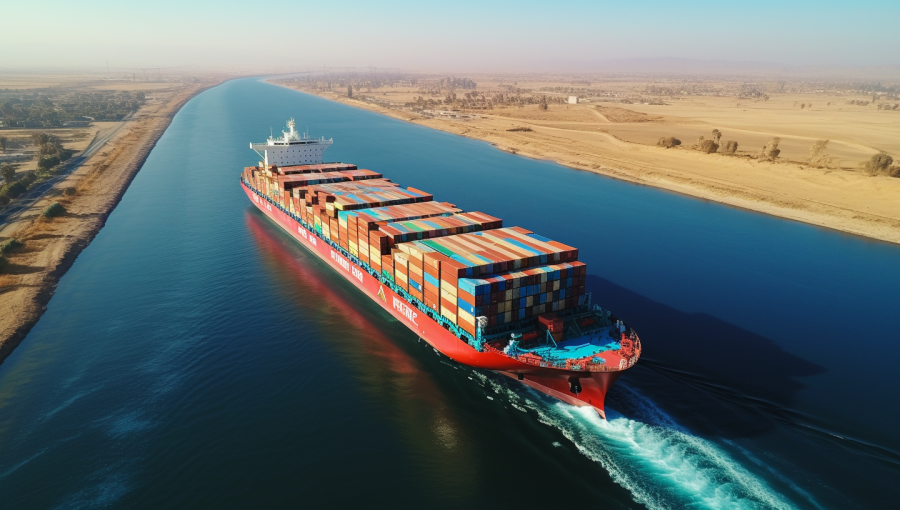Egypt’s Suez Canal, once a cornerstone of the nation’s foreign currency earnings, suffered a staggering drop in revenue last year, with officials attributing the near two-thirds decline to regional instability and escalating maritime threats in the Middle East.
The Suez Canal Authority announced on Wednesday that total canal revenues in 2024 fell to $3.991 billion, down sharply from a record high of $10.25 billion in 2023. The authority cited a dramatic fall in shipping traffic, brought on by security concerns linked to the ongoing conflict in Gaza and Houthi rebel activity in the Red Sea.
Canal traffic has dropped by nearly 50%, with only 13,213 vessels passing through in 2024, compared to more than 26,000 the previous year. The sharp decline comes amid continued missile and drone attacks on merchant ships by Yemen’s Iran-aligned Houthi rebels, who have targeted vessels with suspected links to Israel since the onset of the Gaza war on October 7, 2023.
Between November 2023 and January 2024 alone, over 100 vessels were attacked, resulting in the sinking of two ships and the deaths of four sailors. The rebels have declared that such actions will persist until the wars in the region end, leading to significant rerouting of global shipping and increasing pressure on alternate maritime corridors.
Despite the crisis, Suez Canal Authority Chairman Osama Rabie emphasized that Egypt remains committed to maintaining navigational and maritime operations. “The region is facing unprecedented challenges, but the canal continues to provide its services,” he stated.
The International Monetary Fund previously noted in a March 2024 report that trade through the Suez Canal had plunged by 50% in the first two months of the year compared to the same period in 2023. The IMF cited security threats in the Red Sea as the primary cause.
The Suez Canal, opened in 1869 and expanded in 2015 under President Abdel Fattah el-Sissi, links the Mediterranean and Red seas, acting as a vital artery for oil, natural gas, and cargo shipments between Europe and Asia. The 2015 expansion allowed for simultaneous two-way traffic and increased the canal’s capacity to accommodate some of the world’s largest vessels.
As Egypt faces mounting economic pressure, the sharp drop in Suez Canal revenue poses further challenges for a government already navigating inflation, subsidy reforms, and IMF-backed financial adjustments.



